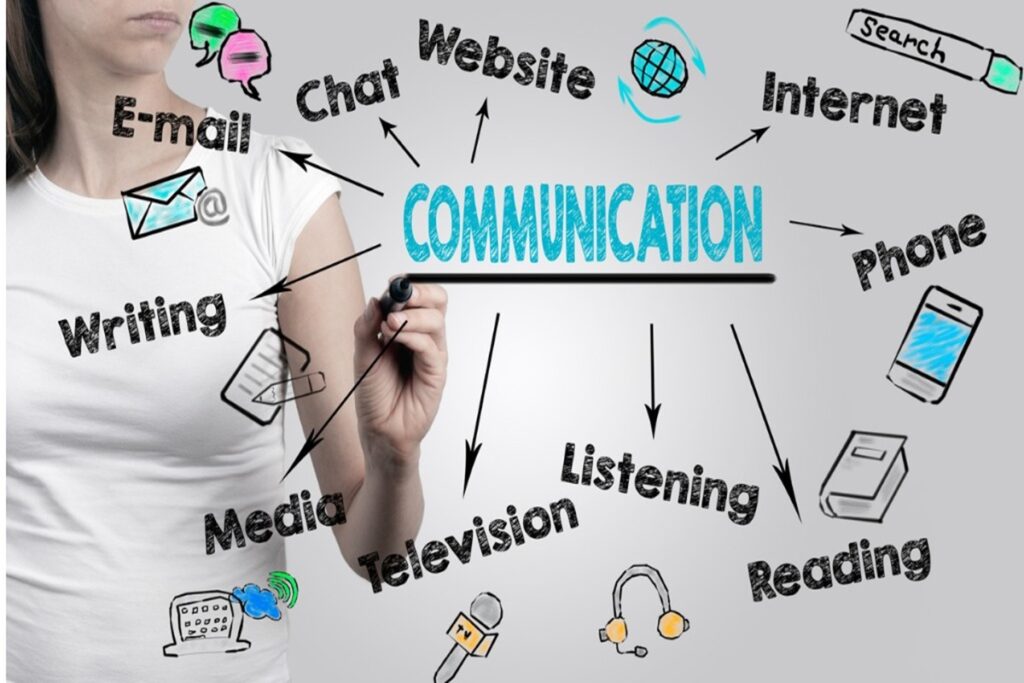Key Takeaways:
- Understand the importance of effective communication in teams.
- Learn about advocacy and inquiry as essential communication practices.
- Discover strategies to improve team conversations and collaboration.
Go Communicate! Exploring and Improving How Your Teams Interact – In every workplace, communication is the backbone of teamwork and productivity. However, teams are made up of people, and people are not always perfect communicators. Misunderstandings, conflicting styles, and unclear messages can all disrupt the flow of work. That’s why it’s crucial to focus on improving communication within your team. In this blog post, we’ll dive into the “Go Communicate!” approach to enhancing team interactions. We’ll explore how understanding and practicing advocacy and inquiry can transform your team’s communication.
Understanding Communication Challenges – Teams often face communication challenges that can hinder their effectiveness. These issues might stem from different communication styles, lack of clarity, or simply human error. The key to overcoming these challenges is to increase awareness of your own communication style and to be open to understanding others’ preferences. This way, communication evolves from just exchanging information to becoming a powerful tool for learning and innovation.
If you found this post helpful, make sure to subscribe to our blog for more insights on improving team dynamics and communication.
Advocacy and Inquiry: A Fresh Perspective – One of the core ideas from the “Go Communicate!” approach is the “advocacy and inquiry” model. Here’s what these terms mean:
- Advocacy: This is when you express your own views and ideas clearly and assertively. It involves sharing your perspective and reasoning behind it. Effective advocacy means being confident about your opinions while being respectful of others.
- Inquiry: This is about asking questions and seeking to understand others’ viewpoints. It involves being curious and open to different ideas and experiences. Good inquiry means listening actively and engaging in meaningful dialogue.
By mastering both advocacy and inquiry, teams can have more productive and respectful conversations. It helps in expressing opinions while also understanding and valuing others’ perspectives.
How to Practice Advocacy and Inquiry?
Here are some practical tips to help your team practice advocacy and inquiry:-
- Encourage Open Dialogue: Create an environment where team members feel comfortable sharing their ideas and asking questions. Regular team meetings and open forums can facilitate this.
- Use Active Listening: When someone is speaking, listen carefully without interrupting. Show that you are engaged by nodding, making eye contact, and summarizing what they’ve said to ensure understanding.
- Ask Clarifying Questions: If you don’t understand something, ask follow-up questions. This not only helps in clearing up confusion but also shows that you are interested in the other person’s perspective.
- Share Your Thoughts Clearly: When presenting your views, be concise and straightforward. Avoid jargon and ensure that your message is easy to understand.
- Practice Empathy: Try to see things from others’ viewpoints. This helps in building trust and improving collaboration.
Developing a Purposeful Communication Plan – To make communication improvements stick, it’s essential to develop a purposeful plan. Here’s how you can get started:
- Assess Current Communication Practices: Identify the strengths and weaknesses in your team’s current communication methods. Gather feedback from team members to understand their communication preferences.
- Set Clear Goals: Define what you want to achieve with your communication plan. Goals might include reducing misunderstandings, increasing team collaboration, or enhancing the clarity of messages.
- Implement Training and Workshops: Consider organizing workshops or training sessions focused on advocacy, inquiry, and effective communication. This helps in equipping team members with the skills they need.
- Monitor Progress: Regularly review how well your communication plan is working. Gather feedback from your team and make adjustments as needed.
- Encourage Continuous Improvement: Communication skills can always be refined. Encourage ongoing learning and development in this area.
Effective communication is crucial for team success. By focusing on advocacy and inquiry, teams can enhance their interactions, foster better understanding, and drive innovation. Remember, communication is not just about passing information; it’s about building relationships and creating a collaborative environment. Start exploring these techniques today and watch your team’s communication improve.
If you found this post helpful, make sure to subscribe to our blog for more insights on improving team dynamics and communication. Share your thoughts and experiences in the comments below. How do you overcome communication challenges in your team?





